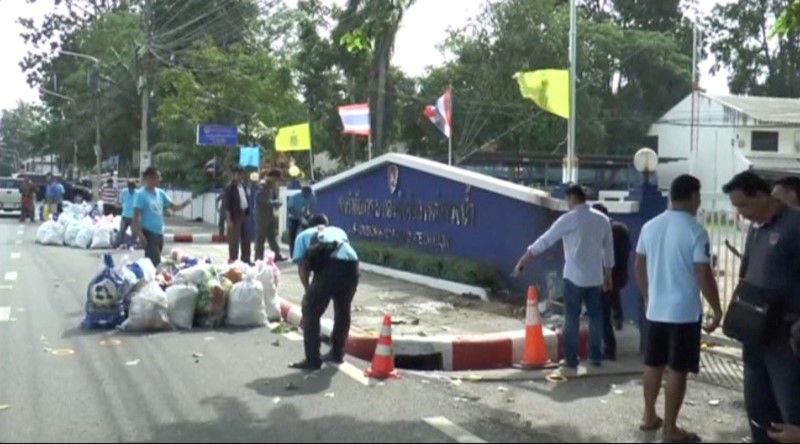By Panarat Thepgumpanat and Aukkarapon Niyomyat
BANGKOK (Reuters) - Thailand's army said on Monday it had detained several people for questioning over a wave of deadly bombings in some of the country's best known-beach resorts that killed four people and wounded dozens, including tourists.
Last week's blasts came days after Thais voted to accept a military-backed constitution that paves the way for an election at the end of 2017.
No group has claimed responsibility, although police and the government have ruled out ties to foreign groups, linking the bombings to an unspecified domestic issue.
Analysts say suspicion would inevitably fall on enemies of the junta aggrieved by the referendum results, or insurgents from Muslim-majority provinces in the south of the predominantly Buddhist country.
Several people are being held at army facilities, but none have been charged, military government spokesman Colonel Winthai Suvaree told Reuters.
"Ever since the incident on August 11, the army has used Article 44 to summon people who the state think can give useful information," Winthai said.
The legislation gives the military government absolute power to take any steps needed to protect the public peace and detain people for up to seven days without a court warrant.
"They were sent to various army camps," added Winthai, who declined to say how many were detained, although rights groups fear the number runs into the dozens. "Nobody has been charged so far."
On Sunday, a deputy national police chief said the attacks were carried out simultaneously by one group on the orders of one person, but gave no further details.
Police on Sunday said they had arrested one person for arson but did not elaborate.
Over the weekend authorities defused at least five explosive devices that had failed to detonate.
Three bombs went off in the Muslim-majority province of Yala late on Sunday, but nobody was injured, police said.
Defence minister Prawit Wongsuwan said last week's blasts were "definitely" not related to the southern insurgency, although some involved might have come from the region.
"It is definitely not an extension of the deep south insurgency," Prawit told reporters on Monday. "But it is possible they could have been hired from there."
For more than a decade, Thailand has been divided between populist political forces, led by former Prime Minister Thaksin Shinawatra and the royalist and military establishment.
They accuse Thaksin, toppled in a 2006 coup, of corruption and nepotism, charges he rejects. His sister Yingluck, who took power after a 2011 election win, was ousted in a 2014 coup.

Fears that Yingluck and Thaksin could be blamed for orchestrating last week's attacks prompted a denial by their party.